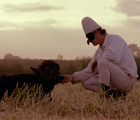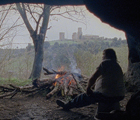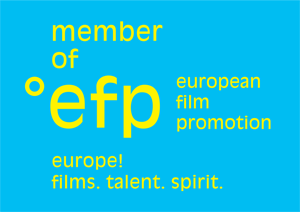Lost and Beautiful (Film) (first feature) (Bella e perduta)
by Pietro Marcello
original title:
Bella e perduta
directed by:
screenplay:
cinematography:
editing:
producer:
production:
Avventurosa, Rai Cinema, Luce Cinecittà, supported by Ministero della Cultura, in association with Mario Gallotti, in collaboration with Fondazione Cineteca di Bologna, with the support of Rolex Mentor and Protégé Arts Initiative, Scam – Bourse Brouillon d'un Rêve
distribution:
world sales:
country:
Italy
year:
2015
film run:
86'
format:
16mm/DCP - colour
release date:
19/11/2015
festivals & awards:
- Visions du Reel 2021: Atelier Pietro Marcello
- DMZ International Documentary Film Festival 2020: DMZ-POV
- Annecy Cinema Italien 2019: Premio Sergio Leone
- Jeonju International Film Festival 2017: Modern Italian Cinema
- Traversées – Le festival de cinéma du Pays de Lunel 2017
- 2morrow / Zavtra Festival 2016: Tomorrow
- BAFICI - Buenos Aires Festival Internacional de Cine Independiente 2016: Places
- Festival del Cinema Italiano - Japan 2016
- Filmfest München 2016: CineVision Competition - Special Mention
- Göteborg Film Festival 2016: The Ingmar Bergman International Debut Award
- IFFR - International Film Festival Rotterdam 2016: Bright Future
- Karlovy Vary International Film Festival 2016: Another View
- Melbourne International Film Festival 2016: First Glance Documentaries
- Montreal Festival du Nouveau Cinéma 2016: Panorama International
- New Directors/New Films 2016
- New Zealand International Film Festival 2016: Vision
- Sydney Film Festival 2016: International Documentaries
- Taipei Film Festival 2016: Visions
- Terra di Cinema festival 2016: Compétition Documentaire
- The European First Film Festival of Angers 2016: Figures libres
- TIFF-Transilvania International Film Festival 2016: Animal
- Villerupt Italian Film Festival 2016: Panorama
- CPH:DOX 2015: Dox:Award
- Festival do Rio 2015: Expectations
- International Thessaloniki Film Festival 2015: Currents
- Locarno Film Festival 2015: International Competition - Junior Jury: First Prize, Ecumenical Jury: Special Mention
- Madrid Italian Film Festival 2015: Documentari
- Message to Man International Film Festival 2015: Tribute to Pietro Marcello
- TFF - Torino Film Festival 2015: Pre-opening
- TIFF - Toronto International Film Festival 2015: Wavelengths
- Vancouver International Film Festival 2015: Cinema of Our Time
- Viennale 2015: Fiction
From the bowels of Vesuvius, Pulcinella, a foolish servant, is sent to present-day Campania to grant the last wish of Tommaso, a simple shepherd: he must rescue a young buffalo called Sarchiapone.
In the Palace of Carditello, an abandoned Bourbon residence in the heart of the ‘Land of Fires’ whose remains were looked after by Tommaso, Pulcinella finds the young buffalo and takes him towards the north. The two servants, man and animal, embark upon a long journey throughout a lost and beautiful Italy, at the end of which they will not find quite what they had expected.
DIRECTOR'S NOTES:
I learnt to look at Italy contemplating its landscape from trains, rediscovering time after time its beauty and its ruin. I have often thought about making an itinerant film that would cross the provinces to describe Italy: beautiful, yes, but lost. Leopardi described it as a woman crying with her head in her hands due to the burden of history, the atavistic evil of being too beautiful.
When I chanced upon the Royal Palace of Carditello and the fairy tale—because it really is a fairy tale—of Tommaso, the ‘Angel of Carditello’, a shepherd who sacrificed everything to dedicate many years of his life to look after this abandoned artistic asset, I saw a powerful metaphor for what I felt compelled to describe. Following the premature and sudden death of Tommaso, Bella e perduta—initially conceived as a ‘journey through Italy’ intended to touch upon other regions—became a different film, marrying fairy tale and documentary, dream and reality.
Carditello is the symbol of a lost beauty and the struggle of an individual, an orphan who refuses to surrender to a rotten mechanism of destruction and decay. And at the same time this story, deeply rooted in our country’s history, examines a subject which has never been so universal: the relationship between man and nature.






